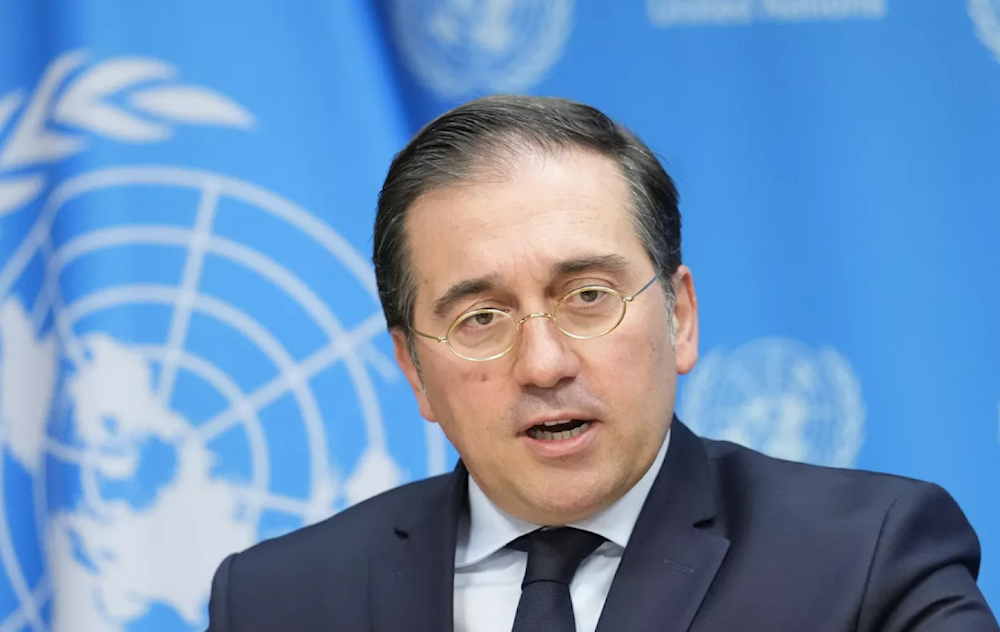Spain demands EU to forge China policy without US: FT
Some EU cities support adopting the US' tough stance on China to align with Trump, while others warn it could harm the EU's economic ties with Beijing.
-

Spanish Foreign Minister Jose Manuel Albares speaking to reporters during a news conference at UN headquarters, on February 23, 2024 (AP)
The EU should create its own China strategy, rather than simply mirroring the combative approach of the Trump administration, Spain's foreign minister expressed on Monday as Brussels navigates Washington's recent hostility toward its European partners.
While some EU cities have advocated for adopting the US' tough stance on China to align with Trump, others have cautioned that doing so could jeopardize the bloc's crucial economic ties with Beijing.
Speaking to the Financial Times, José Manuel Albares said, "Europe must take its own decisions, on its own. And we have to decide when China can be a partner and when China is a competitor."
“We can have certainly a dialogue with the country that I think is our natural ally, the United States. But Europe must take its own decisions,” he stated.
A schism between Trump and Europe has grown in recent days, after the US president's outreach to Russia and critical words about Ukraine and its leader, Volodymyr Zelensky.
The Trump administration has also proposed withdrawing its security assurances from Europe.
The EU's 27 member states do not have a common stance on China, but the relationship has been strained by trade disputes and Beijing's support for Russia in the war in Ukraine.
During Trump's first term in office and even under his predecessor Joe Biden, the European Commission and major cities were pressed to take a more harsh attitude against Beijing. In 2019, the group designated China as a "systemic rival".
However, in an indication of a potential EU-China thaw, commission head Ursula von der Leyen urged earlier this month for a renewed push to strengthen relations between Brussels and Beijing.
Pedro Sanchez, Spain's prime minister, has been actively wooing Chinese investment, visiting President Xi Jinping twice in Beijing in the last two years and causing alarm in other European cities.
Last October, the EU imposed tariffs of up to 45% on Chinese electric vehicles, but the measure sparked profound disagreements within the group. Sanchez suggested the measure should be "reconsidered" in September, and Spain finally abstained in the crucial vote. Germany and Hungary voted against tariffs.
"When China can be a partner, let's take advantage of that," Albares added.
"When we can be a competitor, we have to protect our citizens and our industry.
Moreover, he asserted that China's demography, size, and position as a permanent member of the UN Security Council are crucial for issues like climate change.
Chinese officials frequently criticize Europe for not being sufficiently independent of the US in their foreign policy.
During a visit to Europe last year, Xi praised China-friendly governments in Serbia and Hungary, with the latter receiving significant Chinese investment in the automotive sector.
Some Chinese analysts suggested Beijing would be skeptical of EU nations attempting to reestablish relations with the country, viewing such steps as a "hedging tactic" against Trump.

 3 Min Read
3 Min Read








